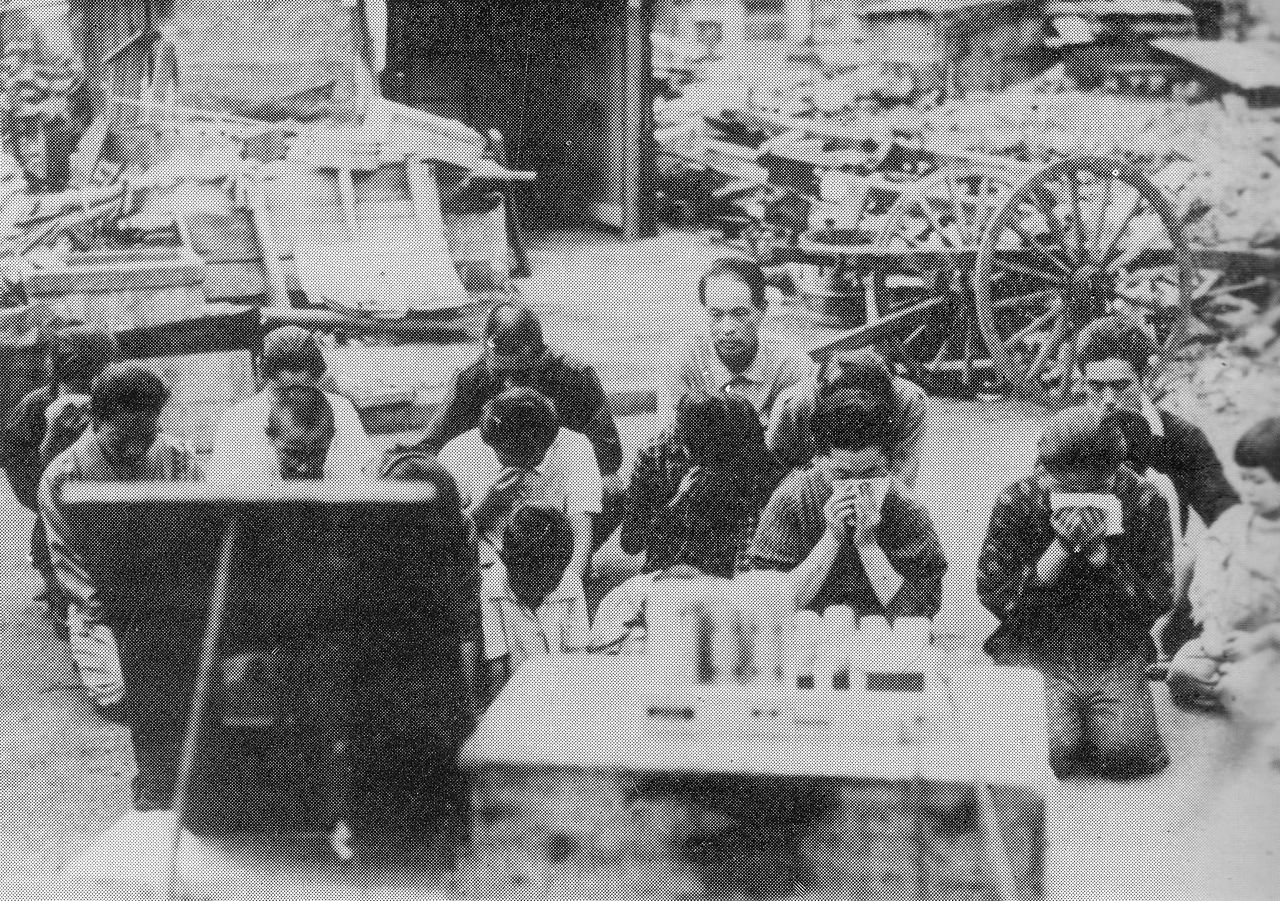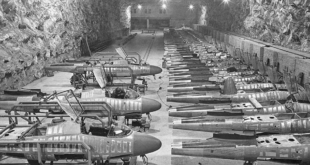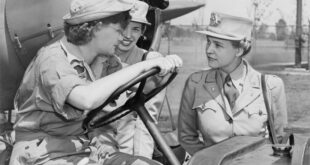
Japanese civilians listening to Emperor Hirohito’s radio broadcast announcing Japan’s surrender on August 15th, 1945. It was the first known time of a Japanese Emperor directly addressing the common people.
The broadcast created a lot of confusion at the time and many people were unsure if Japan actually capitulated. Emperor Hirohito’s speech made no direct reference to a “surrender”, instead merely addressing the signing of a “join declaration”. It was also delivered in Classical Japanese, a form of the language which held many unfamiliarities to the ordinary Japanese people. However, at the end of the transmission, a radio announcer cleared up the confusion by confirming that Japan was indeed surrendering.
Having been pre-recorded a day before broadcasting (together with a backup), the declaration prompted many officers, soldiers and rebels to storm the Imperial Palace on the evening of August 14th in order to destroy the recordings and accomplish a coup d’état, as they deemed a surrender to be dishonorable. However, they were unable to find the two recordings, which were hidden in a pile of documents and later smuggled out of the palace in a lunch bag and a lacquer box. Major Kenji Hatanaka, leader of the coup, attempted to stop the broadcast at the NHK radio station the following morning, but he was ordered to stand down by the Eastern District Army.
In the end, despite holding the Palace grounds for most of the night, the rebels were forced to withdraw. By 08:00 in the morning the coup attempted was dismantled, mainly due to lack of support and orders from superiors. Later that day, before the official broadcast being made, Kenji Hatanaka and Jirō Shiizaki (leaders of the rebellion) committed suicide.
Japan’s capitulation did not come quick. The Potsdam declaration called for Japan’s unconditional surrender on July 26th (the alternative being “prompt and utter destruction”). In response, the Japanese refused and held out the decision to surrender for weeks, despite being unable to conduct any major operations, and facing an imminent invasion.
While treating for more favorable terms with the publicly neutral Soviet Union (unaware of USSR’s involvement in the Potsdam declaration), Japan was hit by the first atomic bomb at Hiroshima on August 6th. Two days later, the Soviets broke the neutrality pact and declared war, invading the puppet state of Manchuoko (Manchuria). On August 9th, the second atomic bomb dropped at Nagasaki and Emperor Hirohito finally gave in to the unconditional surrender.
Book suggestions ⤵️
📖 Japan’s Longest Day (The Pacific War Research Society, 1968)
📖 Japan’s Decision to Surrender (Robert Joseph Charles Butow, 1954)
TV Series suggestion ⤵️
 WW2 HistoryBook World War II historical images. WW2 book reviews and movie reviews.
WW2 HistoryBook World War II historical images. WW2 book reviews and movie reviews. 

